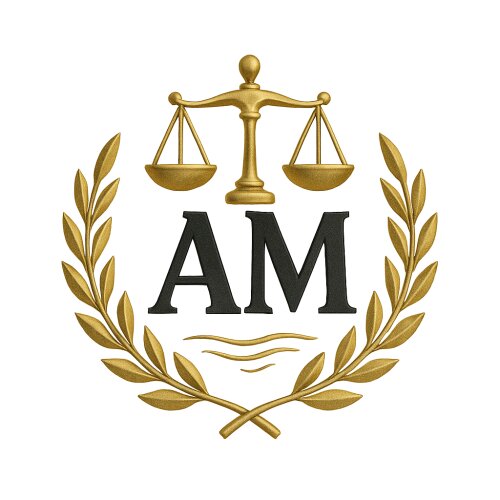Best Housing, Construction & Development Lawyers in Poland
Share your needs with us, get contacted by law firms.
Free. Takes 2 min.
Free Guide to Hiring a Real Estate Lawyer
Or refine your search by selecting a city:
List of the best lawyers in Poland
About Housing, Construction & Development Law in Poland
Housing, Construction & Development Law in Poland covers a wide range of legal issues related to the construction, management, purchase, and sale of real estate properties. This area of law is governed by various legislative acts, such as the Building Act, the Real Estate Management Act, and the Civil Code. These regulations ensure orderly and safe construction processes, protect property rights, and provide guidelines for urban planning and land use. In Poland, local authorities also play a crucial role in the development and management of housing projects, ensuring compliance with the national and European Union standards.
Why You May Need a Lawyer
Many situations may necessitate legal assistance in the field of Housing, Construction & Development in Poland. Here are a few common scenarios:
- You are purchasing or selling a property and need to ensure all legal aspects are considered.
- You're involved in a dispute over property boundaries or ownership rights.
- You need assistance navigating the planning and permit processes for construction or renovation projects.
- You're a developer seeking to comply with environmental, zoning, or building regulations.
- You're facing eviction or issues related to rental agreements.
- You require guidance on tax implications related to property transactions.
In these cases, a lawyer can provide valuable insights, assist with documentation, and represent you in disputes or negotiations.
Local Laws Overview
Key aspects of local laws in Poland relevant to Housing, Construction & Development include:
- The Building Act: Regulates the principles, conditions, and procedures for carrying out construction projects, ensuring safety and standards compliance.
- The Real Estate Management Act: Governs property rights, management of real property, and outlines procedures for transactions and disputes.
- Zoning Regulations: Local plans delineating permissible uses for land and additional restrictions for particular areas.
- Environmental Protection Laws: Ensures that construction projects adhere to environmental protection standards.
- Tenancy Laws: Covers landlord and tenant rights, obligations, and dispute resolution procedures.
Frequently Asked Questions
What documents do I need to buy a property in Poland?
You'll need your identification, a property sale agreement, a copy of the land register extract, and a mortgage certificate if applicable.
Do I need a permit to renovate my apartment?
Minor renovations often do not require a permit, but significant structural changes typically need approval from the local building authority.
How can I resolve a boundary dispute with my neighbor?
Boundary disputes can be resolved through negotiation, mediation, or legal action in court. A lawyer can assist throughout the process.
What should I do if I face eviction?
Review the terms of your lease, ensure your rights are protected under tenancy laws, and seek legal advice if needed.
Are there any special regulations for historical buildings?
Yes, historical buildings are protected, and changes are regulated under heritage conservation laws. You may need special permits for renovations.
What taxes are involved in property transactions?
Transactions may involve real estate transfer tax, VAT, or income tax depending on the specifics of the deal.
How do I obtain a construction permit?
You must submit a construction project application to the local building authority along with necessary documents and plans.
Can foreigners buy property in Poland?
Yes, but it might require obtaining a permit from the Ministry of the Interior, especially for agricultural or forest land.
What is a condominium statute?
A condominium statute regulates the use and management of shared spaces in a residential building, defining rights and obligations of unit owners.
How are real estate agents regulated?
Real estate agents in Poland must adhere to legal regulations under the Real Estate Management Act and are often licensed professionals.
Additional Resources
Consider reaching out to the following resources for more information:
- Ministry of Development Funds and Regional Policy: Oversees policies related to housing and construction projects.
- Local Building Authorities: Provide guidelines and permits for construction-related activities.
- Polish Association of Real Estate Developers: Offers information and support related to real estate development.
- Court of Arbitration for the Construction Industry: Specializes in resolving disputes related to construction and development.
Next Steps
If you find yourself in need of legal assistance in Housing, Construction & Development, here are your next steps:
- Identify the specific legal issue you're encountering.
- Gather all relevant documents and information related to your issue.
- Seek out a reputable lawyer or legal firm specializing in real estate and construction law.
- Schedule a consultation to discuss your case and understand your legal options.
- Decide on a course of action with your lawyer, whether it’s negotiating, mediating, or litigation.
Proper legal guidance can help ensure your interests are protected, and you achieve the best possible outcome in your situation.
Lawzana helps you find the best lawyers and law firms in Poland through a curated and pre-screened list of qualified legal professionals. Our platform offers rankings and detailed profiles of attorneys and law firms, allowing you to compare based on practice areas, including Housing, Construction & Development, experience, and client feedback.
Each profile includes a description of the firm's areas of practice, client reviews, team members and partners, year of establishment, spoken languages, office locations, contact information, social media presence, and any published articles or resources. Most firms on our platform speak English and are experienced in both local and international legal matters.
Get a quote from top-rated law firms in Poland — quickly, securely, and without unnecessary hassle.
Disclaimer:
The information provided on this page is for general informational purposes only and does not constitute legal advice. While we strive to ensure the accuracy and relevance of the content, legal information may change over time, and interpretations of the law can vary. You should always consult with a qualified legal professional for advice specific to your situation.
We disclaim all liability for actions taken or not taken based on the content of this page. If you believe any information is incorrect or outdated, please contact us, and we will review and update it where appropriate.
Browse housing, construction & development law firms by city in Poland
Refine your search by selecting a city.
















